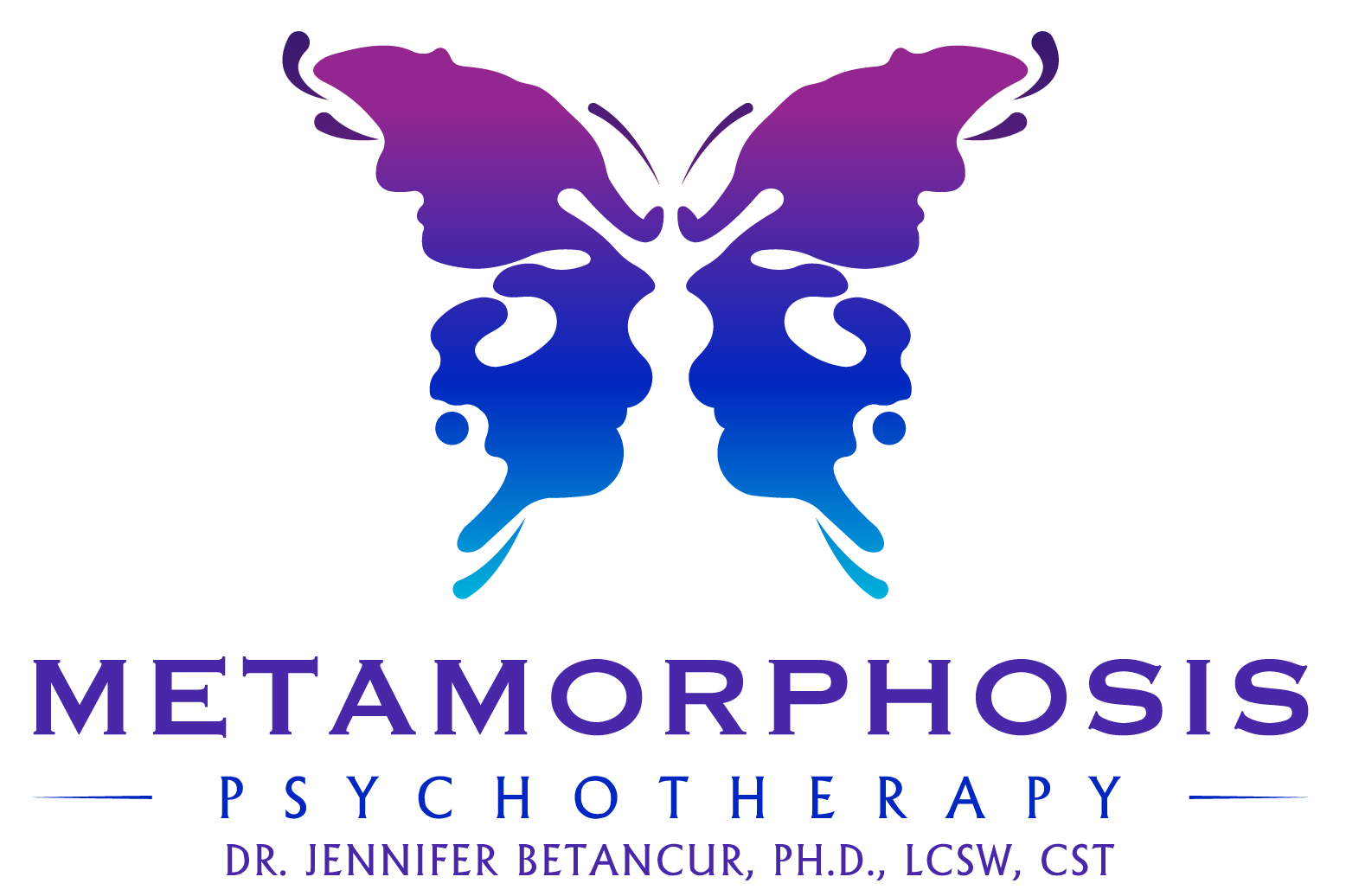By Dr. Jennifer Betancur, PhD, LCSW, CST
AASECT-Certified Sex Therapist | Telehealth Across Florida
Many people are curious about sex therapy but unsure what it really involves. Sexual concerns can feel isolating, yet they are part of the human experience. This Q&A draws on research and clinical insight to clarify what sex therapy is—and how it can support emotional and relational healing.
What is sex therapy?
Sex therapy is a form of psychotherapy that focuses on the psychological, emotional, and relational aspects of sexuality. It helps individuals and couples understand patterns of desire, anxiety, communication, and connection.
According to the American Association of Sexuality Educators, Counselors, and Therapists (AASECT), sex therapy provides a safe, confidential space to address challenges like low desire, performance anxiety, or sexual pain without judgment or physical contact (AASECT, 2023).
Who can benefit from sex therapy?
Sexual difficulties are common and treatable. A study published in the Journal of Sexual Medicine found that approximately 43% of women and 31% of men experience some form of sexual concern during their lifetime (Laumann et al., 2022, NIH).
People seek therapy for a range of reasons:
-
Mismatched levels of desire
-
Anxiety or shame related to intimacy
-
Difficulty with arousal or orgasm
-
Pain or discomfort during sex
-
Emotional distance or loss of connection in relationships
-
Recovery after trauma or infidelity
-
Exploring gender, sexual identity, or body image
Sex therapy can help individuals and couples replace avoidance or fear with curiosity, empathy, and understanding.
What happens in a typical session?
Sessions are conversational, not behavioral. A therapist may guide clients to explore the emotional meanings attached to sex, the influence of upbringing and culture, or communication habits that block intimacy.
Evidence-based methods often used in sex therapy include:
-
Sensate Focus exercises (Masters & Johnson, 1970): structured touch activities that build non-demand intimacy.
-
Emotionally Focused Therapy (EFT) for couples, which enhances attachment and emotional safety (Johnson, 2019, Journal of Couple & Relationship Therapy).
-
Mindfulness-based interventions, shown to reduce anxiety and increase sexual satisfaction (Brotto et al., 2018, Annual Review of Sex Research).
Is sex therapy only for couples?
No. Individuals frequently attend therapy on their own to understand their desires, manage anxiety, or recover from past experiences. Couples often attend together when emotional or sexual disconnection affects the relationship. Both approaches aim to improve self-awareness and communication, not simply sexual performance.
Does therapy focus only on sex?
Sex therapy rarely isolates sexuality from broader emotional health. The American Psychological Association (APA) emphasizes that sexuality is intertwined with identity, mood, trauma, and relationships (APA, 2023).
Therapy often explores how stress, shame, or relational conflict influence sexual expression, while helping clients develop a more compassionate understanding of themselves.
How long does sex therapy take?
Duration varies. Some clients find meaningful progress in 8–12 sessions, while others benefit from longer-term work depending on their goals and history. Change typically depends on consistency, openness, and collaboration between therapist and client.
What qualifications should a sex therapist have?
It’s important to seek a clinician with formal training in sexual health. The AASECT Certification Directory lists professionals who meet rigorous education, ethics, and supervision standards (AASECT Certified Professionals).
Working with a licensed therapist who specializes in sexuality ensures that interventions are evidence-based and grounded in ethical practice.
Is it normal to feel nervous about starting?
Yes. Talking about sexuality can feel vulnerable, especially for those who were raised with shame or silence around these topics. Therapy offers a confidential and affirming environment where you can build comfort at your own pace. Most clients report relief after realizing that sexual difficulties are common and treatable.
Key takeaway
Sex therapy integrates science, empathy, and communication to help people understand their bodies, emotions, and relationships more deeply. It’s not about “fixing” someone—it’s about restoring connection, safety, and self-acceptance.






